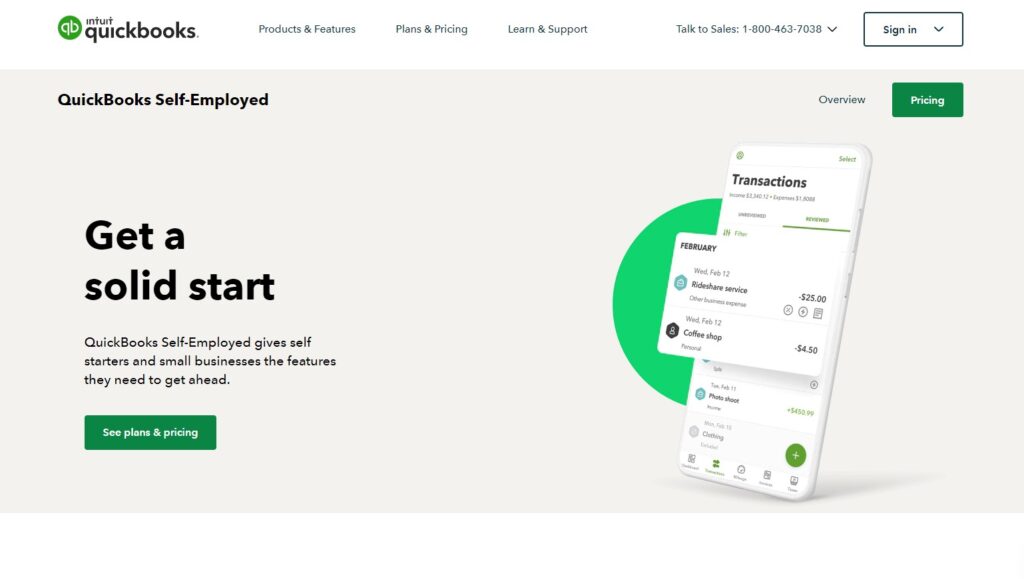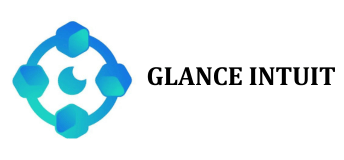In-Depth Analysis of QuickBooks Self-Employed
Discovering the ideal financial management tool for freelancers and independent contractors is crucial for navigating the complexities of self-employment. QuickBooks Self-Employed emerges as a prominent solution, designed to streamline accounting tasks and facilitate financial organization. This comprehensive review delves into its features, usability, and overall effectiveness, offering insights into how it can empower individuals to manage their finances efficiently.
Navigating the nuances of self-employment often requires a robust accounting software tailored to unique needs. With QuickBooks Self-Employed, users gain access to a suite of tools crafted to simplify income and expense tracking, tax calculations, and invoicing processes. This review aims to provide a detailed examination of its capabilities, ensuring potential users can make informed decisions about integrating it into their entrepreneurial toolkit.
Review of QuickBooks Self-Employed: Advantages, Disadvantages, Pricing, and Alternatives
QuickBooks Self-Employed allows seamless integration with your banking, PayPal, and various other accounts. It offers straightforward methods to categorize transactions as either business or personal, whether manually or through automatic tagging. You can efficiently manage invoices, track their status, and generate comprehensive reports covering mileage logs, receipts, tax information, profit and loss statements, and additional business metrics. It’s important to note that while the platform provides minimal customization and lacks the ability to create estimates, understanding its pros and cons will help you determine if QuickBooks Self-Employed is the right fit for your needs.

Advantages of QuickBooks Self-Employed
QuickBooks Self-Employed offers numerous advantages tailored to freelancers and independent contractors. From seamless expense tracking to simplified invoicing and tax preparation, it streamlines financial management, allowing users to focus more on their work and less on administrative tasks.
Streamlined Swiping and Efficient Automation
In QuickBooks Self-Employed, managing your finances becomes effortless with intuitive swiping gestures. Whether it’s categorizing income and expenses as personal or business-related, or splitting transactions based on specific allocations, the app simplifies financial tracking.
For those who prefer automation over manual swiping, the software allows you to set up rules that automatically categorize transactions. This feature is particularly handy for identifying recurring sources of income or expenses, such as client payments or office supplies from vendors like Staples. You can even retroactively apply rules to ensure accuracy in past records.
Automated Mileage Deduction Setup
One standout feature of QuickBooks Self-Employed is its automated mileage tracking. By simply enabling this feature in the app, you can effortlessly track business-related trips. The software calculates mileage using current IRS rates, ensuring accurate deductions come tax time. Users can manually enter trips as needed, while the program maintains a comprehensive tally for easy reporting.
Simplified Expense Categorization for Tax Efficiency
In addition to mileage, QuickBooks Self-Employed streamlines expense categorization according to IRS Schedule C – Form 1040 guidelines. From advertising costs to legal fees and utilities, you can assign expenses to relevant categories effortlessly. This organization not only saves time but also reduces stress during tax season, ensuring your records are IRS-compliant and ready for filing.
Disadvantages of QuickBooks Self-Employed
While QuickBooks Self-Employed offers convenience for freelancers and independent contractors in managing finances, it has notable drawbacks. Users may find its features limited compared to other versions of QuickBooks, particularly in complex accounting needs such as inventory management or accrual-based accounting. Additionally, its integration capabilities with other software may be insufficient for businesses requiring extensive third-party application support.
Inability to Support Multiple Businesses
Self-Employed is limited in its ability to accommodate multiple businesses simultaneously. If you operate more than one company, you’ll need separate accounts and must purchase multiple plans. Unlike QuickBooks Online, which allows toggling between companies within a single login, Self-Employed requires maintaining separate emails, logins, and passwords for each business. This can lead to frustration and inefficiency due to the need to constantly switch between accounts.
Limitations in Business Scalability
Moreover, Self-Employed lacks scalability for growing businesses. As your company expands, you’ll find it necessary to transition to a different accounting software rather than upgrading within the Self-Employed platform. Migrating data to a new system, even within QuickBooks products, can be complex and cumbersome. For instance, mileage data cannot be directly imported into a new account, requiring manual input. Additionally, once you migrate to QuickBooks Online from Self-Employed, there’s no option to revert back, further limiting flexibility in managing your accounting needs as your business evolves.
Pricing of QuickBooks Self-Employed
QuickBooks provides three different accounting software plans specifically designed for self-employed individuals. Each plan includes useful tools tailored to help freelancers and small business owners generate the necessary tracking reports to stay proactive. Promotional rates might be offered for these plans.
QuickBooks Self-Employed for $15 Per Month
- Manage business and personal expenses separately.
- Automatically track mileage.
- Optimize Schedule C deductions.
- Calculate quarterly estimated taxes automatically.
QuickBooks Self-Employed Tax Bundle for $25 Per Month
- Includes all features of QuickBooks Self-Employed.
- Pay quarterly estimated taxes directly through QuickBooks.
- Easily import data into TurboTax for tax filing.
- File state and federal tax returns.
QuickBooks Self-Employed Live Tax Bundle for $35 Per Month
- Includes all features of the Self-Employed Tax Bundle.
- Access unlimited advice and assistance throughout the year.
- Consult live with certified CPAs and TurboTax experts.
- Have a CPA perform a final review of your tax return.
Other options instead of QuickBooks Self-Employed
There are various accounting software options designed for self-starters, freelancers, and small business entrepreneurs. Explore alternative choices to QuickBooks Self-Employed, comparing factors like cost, benefits, and drawbacks.
QuickBooks Online
Offers a range of pricing options starting at $25 per month and going up to $180 or more, depending on the chosen plan and additional features.
Advantages of QuickBooks Online include the ability to upgrade plans as your business expands, allowing for more comprehensive reporting capabilities, integration with numerous business apps, and seamless data migration during plan upgrades.
However, the cost of QuickBooks Online may be considered high depending on the specific requirements of your business.
Wave
Is available for free.
Benefits of Wave include unlimited invoicing and estimating capabilities tailored for small businesses. Users can also personalize their company’s color scheme and logos directly within the software.
One drawback of Wave is its lack of mileage tracking features, necessitating the use of external tools such as Hurdlr or MileIQ for this purpose.
Frequently Asked Question
Discover the comprehensive capabilities and benefits of QuickBooks Self-Employed through these frequently asked questions. Whether you’re exploring its features, understanding its integration options, or seeking insights into its security measures and support resources, these FAQs provide valuable insights into how QuickBooks Self-Employed can streamline financial management for freelancers and independent contractors.
What are the key features of QuickBooks Self-Employed?
QuickBooks Self-Employed is designed for independent contractors and freelancers to manage their finances efficiently. It offers features such as income and expense tracking, invoicing, mileage tracking, and tax estimation. The software automatically categorizes transactions, simplifying tax preparation. Additionally, users can connect their bank accounts for real-time transaction syncing and easily separate business and personal expense.
How does QuickBooks Self-Employed help with tax preparation?
QuickBooks Self-Employed streamlines tax preparation by categorizing business transactions and calculating estimated quarterly taxes. It allows users to track deductions for mileage, home office, and other expenses, ensuring accurate tax filing. The software also generates Schedule C reports, which are essential for reporting self-employment income and deductions on personal tax returns.
Can QuickBooks Self-Employed integrate with other financial tools?
Yes, QuickBooks Self-Employed integrates with various financial tools and platforms. Users can connect their bank accounts, credit cards, and payment processors for automatic transaction syncing. Additionally, it integrates with TurboTax for easy transfer of financial data during tax season, simplifying the filing process and ensuring accuracy.
How secure is QuickBooks Self-Employed?
QuickBooks Self-Employed prioritizes the security and privacy of user data. It employs bank-level encryption to protect financial information and adheres to strict industry standards for data protection. User data is stored securely in the cloud, backed by multiple layers of security protocols to prevent unauthorized access and safeguard sensitive information.
What support options are available for QuickBooks Self-Employed users?
QuickBooks Self-Employed provides various support options to assist users. This includes comprehensive online resources such as FAQs, user guides, and video tutorials accessible through the QuickBooks website. Users can also contact customer support via phone or live chat for personalized assistance with troubleshooting, account management, or product inquiries.
